The Mind's Influence on Health Is Now Recognized
(Sylvia Engdahl's background information for her novel Stewards of the Flame)
BACKGROUND ON CONTROVERSIAL
TOPICS DEALT WITH IN
STEWARDS OF THE FLAME
Truer than you may realize
Mind's influence on health
Worse than you may know
Recently, a good real of research on the relationship between the mind and body has been done by neurologists. This has led to revived interest in the "mind-body problem" that has been debated by philosophers for hundreds of years: is there a non-physical aspect of living beings called mind, or does consciouness arise solely from the physical brain? Some neurologists claim that fMRI studies have demonstrated that mind is merely an illusion because activity in the parts of the brain concerned with thoughts and emotions can be seen on scans before the subject of the experiment is conscious of them. This reasoning is not valid, since it omits the unconscious mind entirely -- ideas and feelings are often unconscious before a person becomes aware that they exist, and that doesn't necessarily mean that they were created by the brain. Nevertheless, the visibilty of activity in those areas of the brain shows that thoughts and emotions are not separate from the physical body and therefore they can influence it. And of course, this influence takes the form of neurotransmitters. No one is saying that the mind somehow affects the body without employing the mechanisms responsible for its normal functioning.
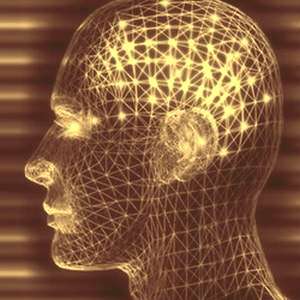
There is not the slightest doubt about the mind's influence on health among researchers who have investigated it. However, it has yet to be accepted by the majority of conventional medical practitioners (although more and more institutions are giving attention to what's generally called mind-body medicine). In part, this is simply the result of resistance to change: it is contrary to what doctors were taught in medical school. Moreover, many are unaware that the physical mechanisms by which the mind affects the body are being discovered, and scientists are never willing to accept the existence of phenomena for which no known mechanism can account; thus they assume that claims for involvement of the mind imply some sort of vague mystical effect which they are understandably reluctant to acknowledge. But I think there is also a deeper reason why most doctors -- and for that matter, most patients -- don't want to believe that that health is dependent on the mind. If they believed that it is, they would have to admit that there is not a lot they can do to eliminate chronic illness. They would be forced to recognize that much of what they do is at best ineffective and at worst, may be harmful. Almost all doctors want to help people. Their lives would be in ruins if they allowed themselves to suspect that they can't.
This is a serious problem, and it's going to get worse as the evidence for the mind's role in health builds up, because we do not, at present, have any way to overcome stress-based illness. Stress is part of life, and our physiological reactions to it are normal; so far we cannot alter them enough to prevent long-term damage to our bodies. (This is why it's a fallacy to say, as some do, that to acknowledge the impact of mental attitude is to "blame the victim.") It is true that meditation, yoga, and other "stress reduction" techniques are often helpful, but they are not cures, nor can they prevent major diseases from developing. There are countless practitioners now offering mind-body medicine, including a growing number of conventional health care providers, but its effects are generally short-lived.
Most advocates of alternative (as distinguished from complementary) medicine make fine statements about the importance of attitude and the dangers of drugs and surgery, yet advocate exotic forms of physical treatment that are of value only insofar as they activate the placebo response -- i.e. the mind's innate healing power, which as yet can't be consciously controlled. In my opinion, existing theories of psychology are no better. And so I think there is going to be a reaction against mind-body medicine when it becomes apparent that however valid its explanation for illness may be, it does not work in practice. That's the basis on which I've assumed, in Stewards of the Flame, that in the distant future mind-body medicine still won't have been incorporated into standard medicine, and that dogmatic reliance on physical treatment will actually have increased -- except among a small minority with the vision to move toward a solution we of the 21st century lack the means to implement.
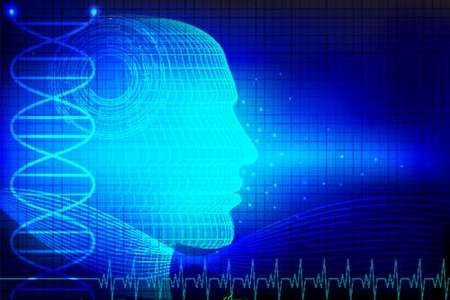
I must emphasize that I have never intended Stewards of the Flame to be interpreted as advice for people living today. I have even put a disclaimer in the book stating this, since there seems to have been some confusion; a few readers have mentioned to me that they agree we should rely on mind-body health care. But the techniques used by the characters in the story -- who can consciously employ their minds' power over neurotransmitters -- are not yet available to us, at least not unless we are psychically-advanced yogis or shamans. Those techniques depend on rigorous training by telepathic instructors using neurofeedback technology far more advanced than we have at present. So while they are able to reject conventional medicine in its entirety, we certainly can't. We can only recognize its deficiencies and imagine an era when it will be surpassed.
Some articles about the mind's influence on the body.
Mind-Body Medicine: An Overview. MentalHealth.net, August 2005. "Mind-body medicine focuses on the interactions among the brain, mind, body, and behavior, and the powerful ways in which emotional, mental, social, spiritual, and behavioral factors can directly affect health."The Healing Force Within by Gabor Mate. Originally in the Vancouver Sun, April 8, 2003. "As far as orthodox medical practice is concerned, the mind-body research all falls into some Bermuda Triangle, lost without a trace. The medical system continues to operate as if the new science did not exist."
Mind–Body Research Moves Towards the Mainstream by Vicki Brower. EMBO Reports, April 2006. "According to the mind–body or biopsychosocial paradigm, which supercedes the older biomedical model, there is no real division between mind and body because of networks of communication that exist between the brain and neurological, endocrine and immune systems.”
Thoughts, Neurotransmitters, Body-Mind Connection by Ron Breazeale. Psychology Today, July 17, 2012. "The literature has demonstrated again and again that thoughts affect neurotransmitters, the chemical messengers that allow the brain to communicate with different parts of itself and the nervous system."
A Neural Basis For The Mind-Body Connection? Neuroscience News, August 15, 2016. "The findings shed new light on how stress, depression and other mental states can alter organ function, and show that there is a real anatomical basis for psychosomatic illness."
The Emerging Neuroscience of Mind-Body Medicine by Eric Haseltine. BrainBlogger, December 16, 2017. "Studies suggest that sensory experiences leave lasting memory traces in the very parts of the cerebral cortex that initially activate when the experiences originally occurred."
Psychoneuroimmunology: A New Approach to Curing Diseases by Albert Wang. The Nerve Blog, February 5, 2016. "Now over the past decade, a new approach to diseases is surfacing and gaining more evidence as time goes on."
Psychoneuroimmunology and Stress by Elizabeth Scott. Verywell Mind, May 6, 2019. "Psychoneuroimmunology research sheds a great deal of light many aspects of wellness and provides important research on stress. PNI studies have found may correlations between life events and health effects."
 The Immune System and Stress by Paige Bierma. HealthDay, January 1, 2019.
Stress acts on the body through the immune system. . . . So, indirectly, a stress-related imbalance in the immune system may have a wider-ranging effect than originally suspected."
The Immune System and Stress by Paige Bierma. HealthDay, January 1, 2019.
Stress acts on the body through the immune system. . . . So, indirectly, a stress-related imbalance in the immune system may have a wider-ranging effect than originally suspected."Psychoneuroimmunology and the Mind’s Impact on Health by Ylenfest. Bill of Health, March 5, 2018. "It seems plausible that in the near future we could develop the tools needed to conduct more rigorous research on the interactions between psychological processes and the nervous and immune systems."
The Mind-Body Interaction in Disease. by Esther M. Sternberg and Philip W. Gold, Originally in Scientific American, August 2002. "The brain and the immune system continuously signal each other, often along the same pathways, which may explain how state of mind influences health."
Recite Your Mantra and Call Me In the Morning, New York Magazine, May 11, 1998. By Henry Dreher. "There are those who think it's a very weird thing to do and those who have faith in the growing body of research suggesting that many mind-body applications actually help. 'If you don't help patients to harness their own healing capacities, you are putting them at a significant disadvantage.... There are certainly dozens and now probably hundreds of studies showing the effect of mind or emotion on the immune system.'"
The Powerful Influence of Placebos on the Brain by Marc Dingman. Neuroscientifically Challenged, July 07, 2015. "The magnitude of the placebo effect is often under-appreciated. Although placebos have no active ingredients, they have been shown to influence both psychology and physiology, and in some cases the effects of a placebo have been found to be stronger than the effects of the medication being compared against it."
What if the Placebo Effect Isn’t a Trick? by Gary Greenberg. New York Times Magazine, November 7, 2018. "[Researchers] have begun to elucidate an ensemble of biochemical processes that may finally account for how placebos work and why they are more effective for some people, and some disorders, than others. The molecules, in other words, appear to be emerging. And their emergence may reveal fundamental flaws in the way we understand the body’s healing mechanisms,"
The Placebo Effect: Redefining the Role of the Mind by Christine Kaminski. Serendip Studiom 2003. "Once thought of as an inactive, harmless mock substance, placebos have now shown that they induce brain activity. Therefore, the perceived benefit that once was laughed off as fooling the patient may actually be a consequence of very real physical responses created by the mind."
 Placebos 'Relieve Symptoms, Improve Treatments' by James McIntosh. Medical News Today, July 2, 2015. "Recent scientific advances have enabled us to identify a trove of neurotransmitters and detect relevant neural brain pathways as well as genetic markers that help explain the biology of the placebo effect."
Placebos 'Relieve Symptoms, Improve Treatments' by James McIntosh. Medical News Today, July 2, 2015. "Recent scientific advances have enabled us to identify a trove of neurotransmitters and detect relevant neural brain pathways as well as genetic markers that help explain the biology of the placebo effect."The Power of the Placebo Effect. Harvard Health Publishing, May 2017. ""Experts have concluded that reacting to a placebo is not proof that a certain treatment doesn't work, but rather that another, non-pharmacological mechanism may be present."
Placebos: The Power of the Placebo Effect by Tim Newman. Medical News Today, September 7, 2017. "Placebos are extraordinary drugs. They seem to have some effect on almost every symptom known to mankind, and work in at least a third of patients and sometimes in up to 60 percent. They have no serious side-effects and cannot be given in overdose. In short, they hold the prize for the most adaptable, protean, effective, safe and cheap drugs in the world's pharmacopeia."
Interview with Dr. John Sarno, Part I and Part II, Medscape Today, June 2004. "Large numbers of people in whom the pain was being attributed to some structural abnormality actually had a totally different disorder. It was a disorder in which the pain was very real, but it was initiated by emotional factors."
The Neuroscience of Mindfulness Meditation by Sarah McKay. Chopra Center. "Because of the increasing popularity of mindfulness meditation, and mounting evidence that meditation has wide-ranging and measurable effects on many aspects of health, neuroscientists too are becoming interested in understanding the biological mechanisms that underlie these effects in the brain."
Why the Brain-Body Connection Is More Important Than We Think by Simon Worrall. National Geographic, March 7, 2018. "Explaining human behavior in terms of brain function alone stems from a kind of mystical view of the brain and keeps us from advancing in a way that science can encourage us."
What Neuroscience Cannot Tell Us About Ourselves by Raymond Tallis. The New Atlantis, Fall 2010. "The pervasive yet mistaken idea that neuroscience does fully account for awareness and behavior is neuroscientism, an exercise in science-based faith."
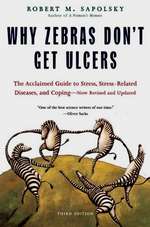 |
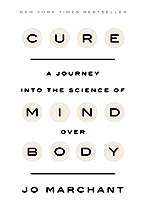 |
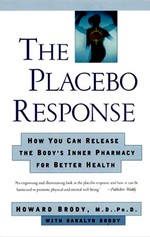 |
 |
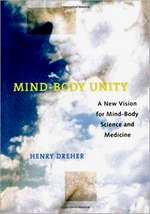 |
Some books about the mind's influence on the body.
This list contains books by doctors, researchers, and journalists. It does not include self-help books or books by alternative medicine practitioners -- of which there are a great many in print -- though some of them may contain good information about the relation between mind and body.Placebo Effects: Understanding the Mechanisms in Health and Disease by Fabrizio Benedett. Oxford University Press, 2014.
Timeless Healing by Herbert Benson. Scribner, 1996.
The Placebo Response: How You Can Release the Body's Inner Pharmacy for Better Health by Howard Brody. Harper, 2000.
Worried Sick: How Stress Hurts Us and How to Bounce Back by Deborah Carr. Rutgers University Press, 2014.
Head First: The Biology of Hope by Norman Cousins. Dutton, 1989.
Intentional Healing: A Guide to the Mind/Body Healing System by Elliott S. Dacher, Marlowe, 1996.
Where the Mind Meets the Body: The Search for the Mind's Effects on Physical Health by Harris Dienstfrey. HarperPerennial, 1992.
Mind-Body Unity: A New Vision for Mind-Body Science and Medicine by Henry Dreher. Johns Hopkins University Press, 2003.
Placebo: Mind over Matter in Modern Medicine by Dylan Evans. Harpercollins, 2014.
The Cure Within: A History of Mind-Body Medicine by Anne Harrington. Norton, 2008, 0393333973.
The Placebo Effect: An Interdisciplinary Exploration by Anne Harrington. Harvard University Press, 1999.
Who Gets Sick: How Beliefs, Moods and Thoughts Affect Health by Blair Justice. Peak Press, rev. ed. 2000.
The Placebo Response and the Power of Unconscious Healing by Richard Kradin. Routledge, 2011.
The Healer Within: The New Medicine of Mind and Body by Steven Locke and Douglas Colligan. Mentor, 1987.
Cure: A Journey Into the Science of Mind Over Body by Jo Marchant, Crown, 2016.
The Healing Mind: The Vital Links Between Brain and Behavior, Immunity and Disease by Paul Martin. St. Martin's, 1999.
When the Body Says No: Understanding the Stress-Disease Connection by Gabor Mate. Wiley, 2003.
The End of Stress As We Know It by Bruce S. McEwen. Joseph Henry Press, 2002.
Meaning, Medicine and the "Placebo Effect" by Daniel E. Moerman. Cambridge University Press, 2002.
The Healing Brain: Breakthrough Discoveries About How the Brain Keeps Us Healthy by Robert Ornstein and David Sobel. Touchstone, 1988.
Molecules of Emotion: The Science Behind Mind-Body Medicine by Candace B. Pert. Scribner, 1997.
Why Zebras Don't Get Ulcers: An Updated Guide to Stress, Stress-Related Diseases, and Coping by Robert M. Sapolsky. Freeman, 2nd ed. 1998.
The Mindbody Prescription: Healing the Body, Healing the Pain by John E. Sarno. Warner Books, 1998.
The Powerful Placebo: From Ancient Priest to Modern Physician by Arthur K. Shapiro. Johns Hopkins University Press, 2010.
Love, Medicine and Miracles: Lessons Learned About Self-Healing from Surgeon's Experience with Exceptional Patients by Bernie S. Siegel. Harper Perennial, 1988.
The Balance Within: The Science Connecting Health and Emotions by Esther M. Sternberg. Freeman, 2001.
Spontaneous Healing: How to Discover and Enhance Your Body's Natural Ability to Maintain and Heal Itself by Andrew Weil. Knopf, 1995.
Last updated in June 2019
Text copyright 2019 by Sylvia Engdahl
This series of pages about background for Stewards of the Flame is not meant to be a comprehensive or balanced overview of the topics covered; it merely offers support for the ideas expressed in the novel.
BACKGROUND ON CONTROVERSIAL
TOPICS DEALT WITH IN
STEWARDS OF THE FLAME
Truer than you may realize
Mind's influence on health
Worse than you may know